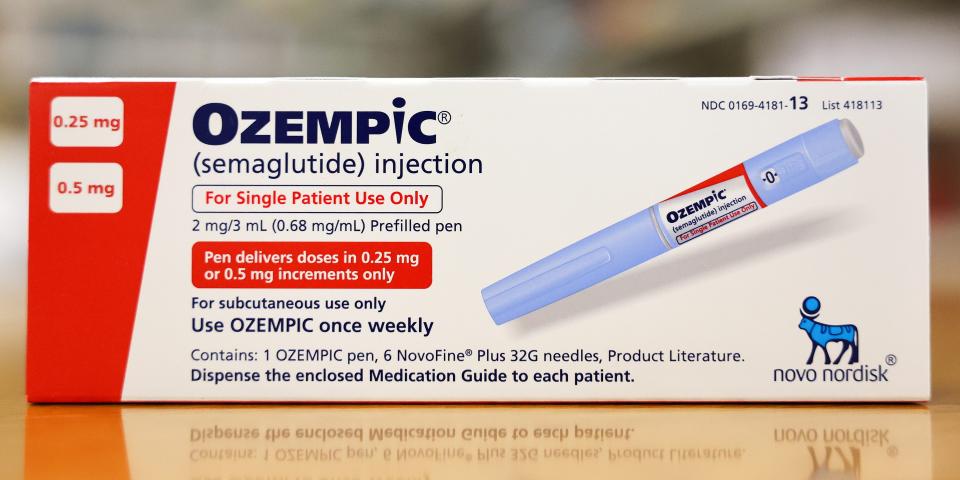Ozempic and other weight-loss drugs will power the anti-obesity market to 16-fold gains by 2030, Goldman Sachs says

-
The anti-obesity market could become a $100 billion industry by 2030, Goldman Sachs predicts.
-
The field is “still in its early stages” but may have reached an inflection point, the bank said.
-
The rise of GLP-1 weight loss drugs has meant big gains for Novo Nord Nordisk and Eli Lilly.
The anti-obesity market is primed for a massive surge over the next six years, according to Goldman Sachs.
Strategists for the bank said in a research note published Tuesday they’re expecting the rise of weight loss drugs, or anti-obesity medications, to power the industry to 16-fold gains by 2030. Such a gain would push its total valuation from $6 billion to as much as $100 billion.
“The obesity market is still in its early stages,” Goldman Sachs biopharmaceuticals analyst Chris Shibutani said, noting the $100 billion figure was still preliminary and “relatively sensitive to minor tweaks to underlying drivers”.
“The chronic weight management market is undergoing an inflection, in our view, with potential for solid growth ahead and a peak opportunity that, by our estimates, could ultimately yield some of the highest-grossing drugs of all time,” he added.
GLP-1 weight-loss drugs such as Ozempic and Wegovy have surged in popularity this year, which analysts believe could create a huge investing opportunity.
Shares in pharmaceutical companies that make the medication, including Denmark’s Novo Nordisk and the US’s Eli Lilly, have also climbed as a result of developments like a drug trial last month that proved that key ingredient semaglutide reduced the risk of kidney failure.
Goldman Sachs based its forecast on a scenario where 15 million American adults are taking GLP-1 drugs by 2030, accounting for just under 15% of the overweight or obese population.
The bank isn’t the only top financial institution identifying the weight-loss market as a billion-dollar investment opportunity.
Morgan Stanley said in September it expects the anti-obesity drug industry to be worth $77 billion by 2030, citing the popularity of the medication on social media as one factor driving faster-than-expected growth.
Meanwhile, Barclays and Berenberg have predicted the market’s value could climb to $100 billion and $85 billion respectively.
Read the original article on Business Insider





